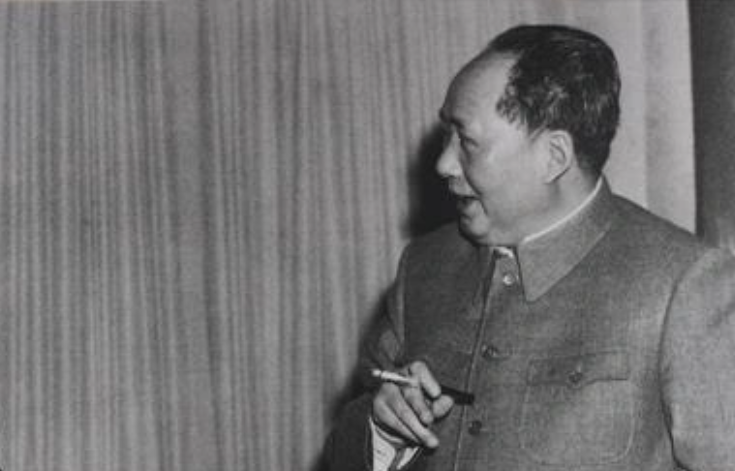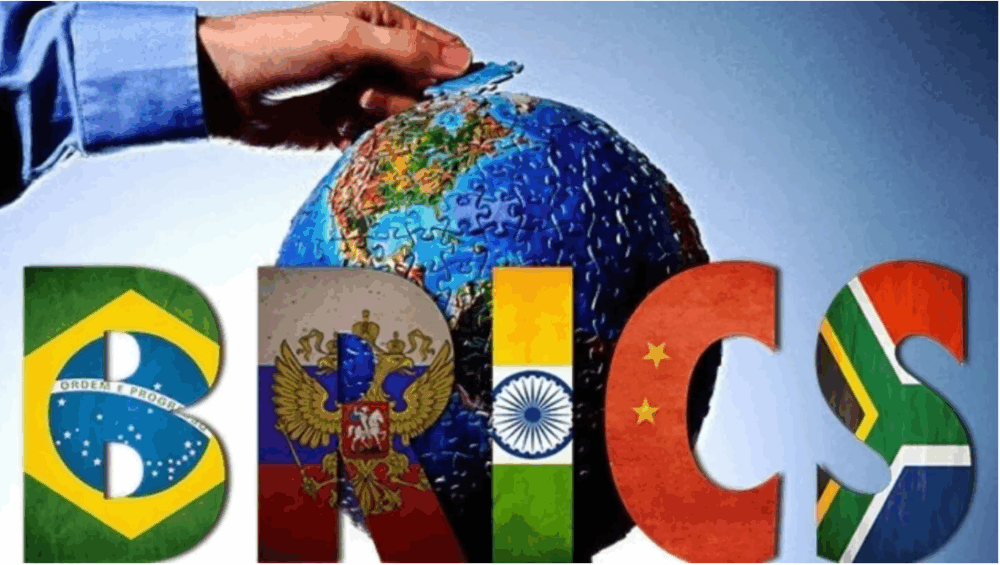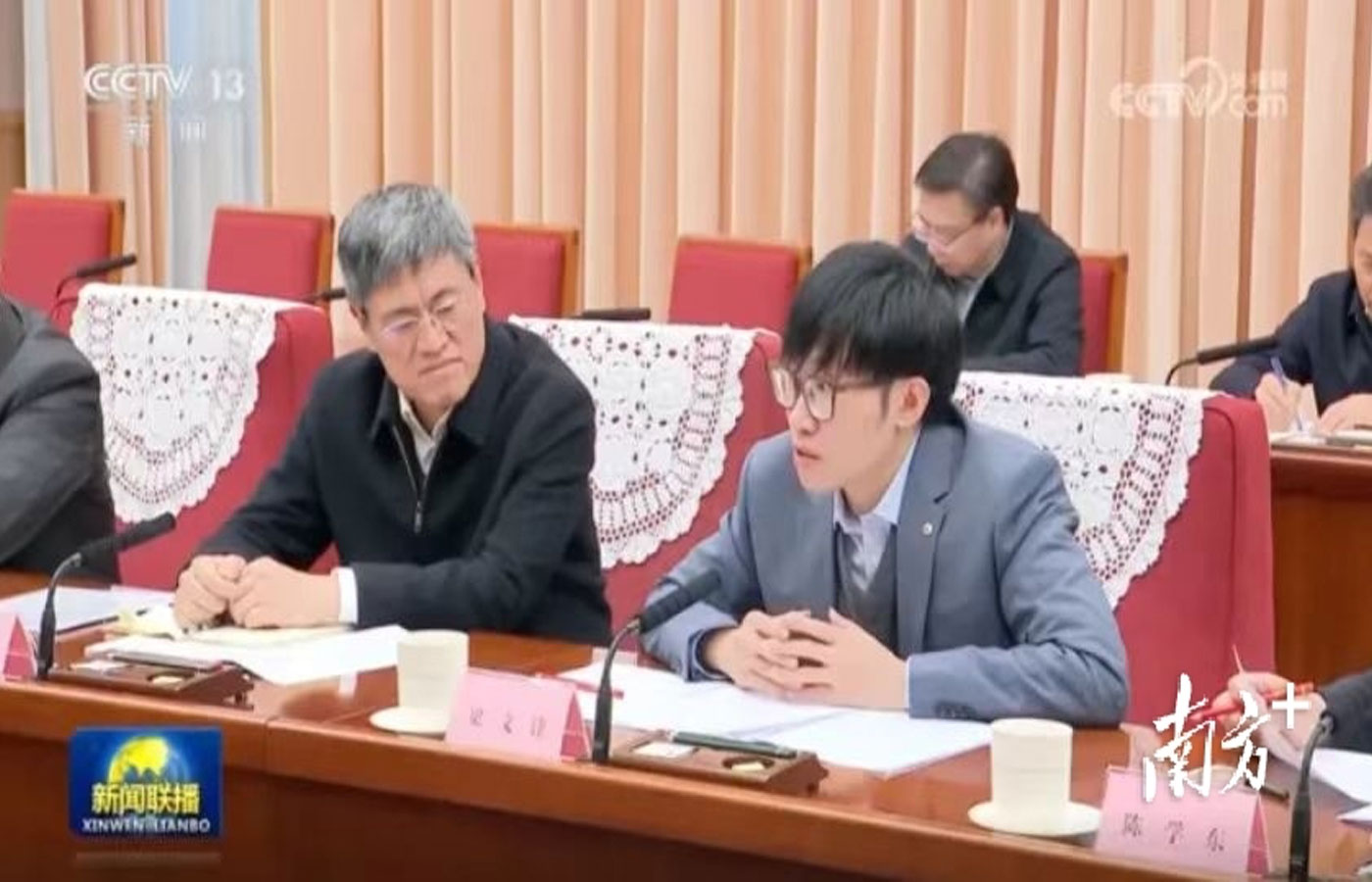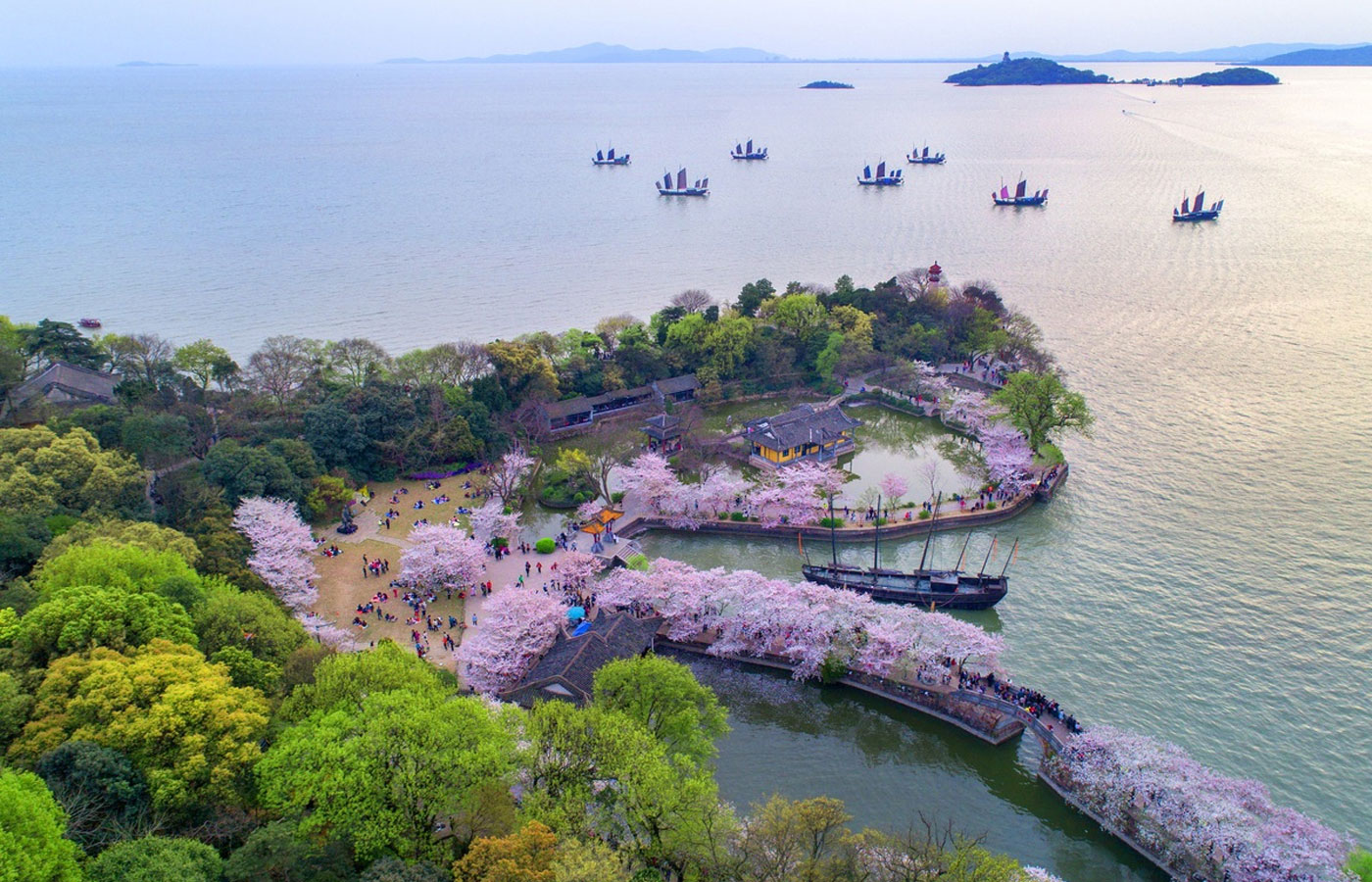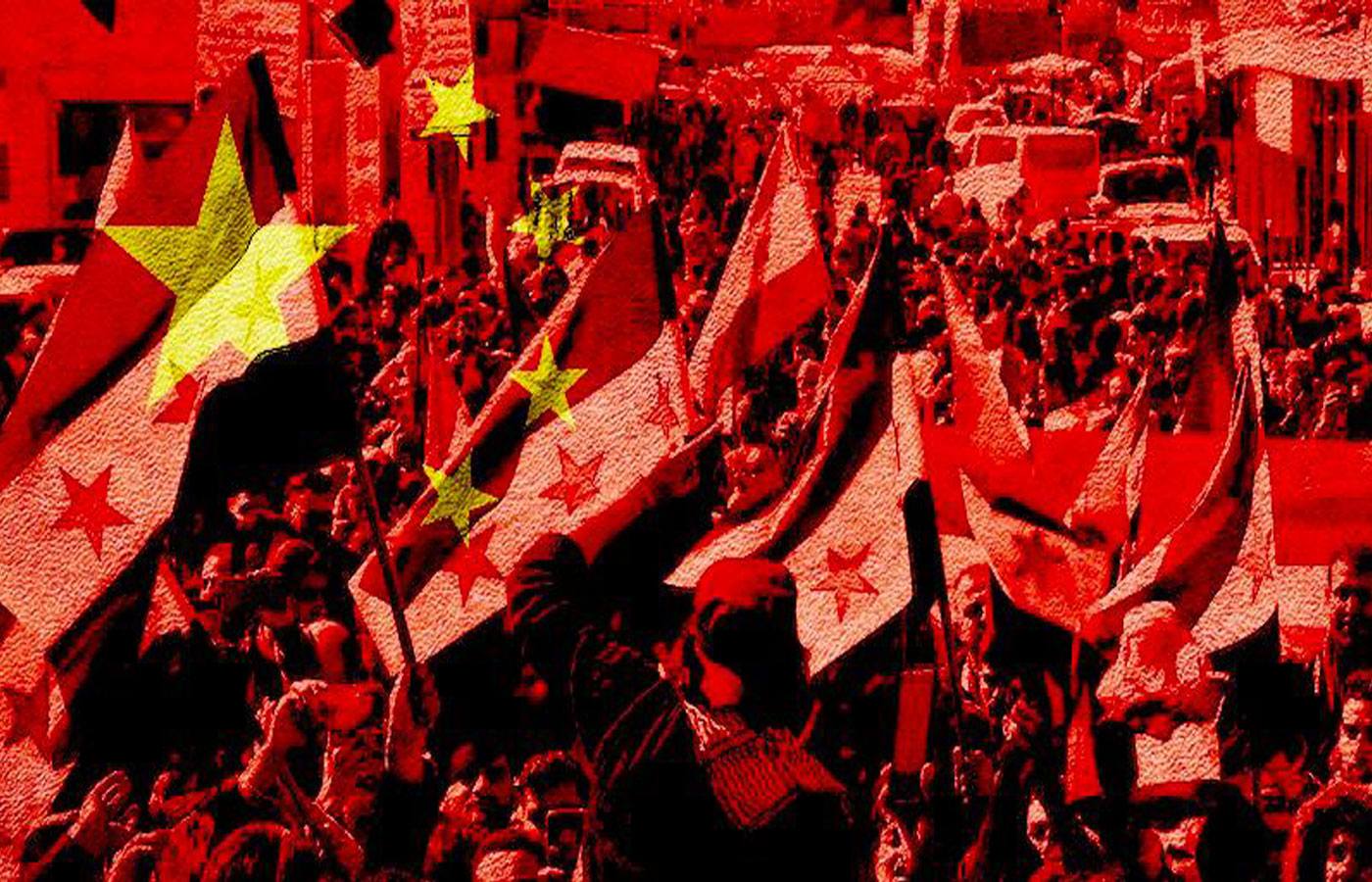It will have escaped no one’s notice that since the outbreak of the conflict in Ukraine, a homogeneous and binary rhetoric has flooded the mainstream media. From CNN to BBC, via France 24 and their numerous relays in Europe and around the world, we have been living since February 24, 2022 in a dichotomous, even antinomic world, where two conceptions of the state are confronting each other on a global scale: one, democratic, represented by the United States and its allies, and the other, authoritarian or even totalitarian, which would characterize China, Russia and their partners.
It is in such a context that déjà vu has resurfaced: the story that since joining the WTO twenty years ago, China has been offered every opportunity by the Western bloc to “democratize” itself. But to no avail. According to Western leaders and their spokespersons, despite this Western altruism towards the Asian giant, the latter has persisted in its penchant for authoritarianism and dictatorship. Former French Foreign Minister Hubert Védrine reaffirmed this in a televised interview on the French channel LCI: in bringing China into the WTO, the United States had an ulterior motive, that of seeing Beijing “democratize,” that is, adopt a Western political system – a project that, he recalls, has failed. In other words, despite the goodwill of the West, China has remained stubbornly obscurantist.
“Democratizing” a sovereign state is anti-democratic
It turns out, however, that in a world enshrined in the United Nations Charter of 1945, every state must be able to choose freely and without external interference its own path to independence and development. Interference by third-party states in the internal affairs of a sovereign state – starting with the choice of its leaders and its system of governance – is indeed a violation of international law [Ch I, Art. 1, 2]. The ambition to “democratize” a sovereign state is therefore, in itself, both anti-democratic, since it ignores the will of the people, and contrary to international law, since it ignores the principle of state sovereignty.
Moreover, with reference to the path of a “socialist market economy with Chinese characteristics” that it has chosen for itself, China has constantly recalled, through the voice of its representatives, that no nation can copy another nation’s model of governance. A development model must be born, not from the outside, but from the intimate experience of a nation, in accordance with its own national realities, while drawing on the experiences of other countries. Under these conditions, the development model chosen by the West cannot provide the appropriate answers to the needs of Chinese society. President Xi Jinping has made his vision clear: “modernization” is not synonymous with “Westernization”. The development path chosen by the leaders of the Chinese Communist Party does not consist of aiming for excessive economic liberalization, but rather a “middle-income society”. And, as Qin Gang, the current Chinese Minister of Foreign Affairs, has just reminded us, “any approach that consists of trimming the foot to fit the shoe or mechanically copying the model of other countries will be counterproductive and could even lead to disastrous consequences”.
China and democracy in the international arena
Looking at the developments of the past few years, China seems to have done much more to promote the democratization of the world than its Western counterparts – and without leaving the framework of international law. The best manifestation of this reality can be seen in the UN forum: for the past 20 years, Beijing has been relentlessly demanding a better representation of developing countries in international institutions – in contrast to the Western bloc, led by Washington, which is content with an imbalance in representation, since this imbalance has always served its hegemonic interests. At the United Nations General Assembly, Wang Yi, former Chinese Foreign Minister, declared in September 2022: “the rules of the game must be written by all countries”.
Apart from these considerations, it is common knowledge that the United States has maintained close ties, even forming strategic alliances, with states governed by non-democratic systems, whether in the Middle East, Asia or Africa – the examples are numerous – not to mention the cases where Washington has worked to overthrow democratically elected governments in order to replace them with vassal regimes. From Iran to Venezuela to Ukraine, the examples are numerous. This means that, in the American sense, the notion of “democratization” is only a pretext, a ruse, which is aimed only at a certain category of states, first and foremost China. Why is this so?
An article in the French newspaper “Les Échos” from 2018 provides an unequivocal answer: “The mistake is to have thought that in China, state capitalism could give way to market capitalism. That the country could have adopted Western values of democracy.”
In other words, the objective was to force Beijing’s alignment with Washington’s economic liberalism. Indeed, the United States does not care what kind of regime is in charge of the Asian giant, as long as that regime agrees to open its market to Western companies, especially American ones, by breaking down all the barriers that serve as safeguards for the emerging Chinese economy. Indeed, Washington’s concern since China’s accession to the WTO has not been the “democratization” of Beijing, but the conversion of the Chinese economic model into one favorable to US interests, in order to consolidate Washington’s economic, commercial and financial hegemony.
When “democratization” means “containment” …
China was thus expected to privatize its economy, following the model of developed economies – or developing economies that are subservient, willingly or unwillingly, to the American liberal system. In other words, to satisfy Washington’s wishes, China would have to privatize its enterprises, especially its state-owned enterprises, which represent the main market shares in strategic industries.
The Euro-Atlantic rhetoric of “democracy” versus “authoritarianism” thus reveals that, when it comes to Beijing, the notions of democracy and market economy must be synonymous. To enjoin China to democratize is therefore to enjoin it to adopt trade rules that conform to the interests of the Western bloc dominated by Washington. Under these conditions, how can we not perceive, behind the intentions of the United States and its allies, a desire to use the concept of democracy as a disguise for its one, sole aim: containing China? President Biden’s repeated call for a “rules-based international order” for China and Russia is fully in line with the US preoccupation of remaining the main global actor capable of enacting international law – in effect depriving the latter of any substance.
Alexander Solzhenitsyn, who once castigated the concept of “prescriptive humanism”, would not have failed to qualify as “prescriptive democracy” this inclusion of “authoritarian” China in a structure such as the WTO in order to “democratize” it: that is to say, opportunistic and deceitful. All the more so when this alleged Western generosity contradicts the terms of the United Nations Charter, to which all the protagonists are signatories.
Behind these accusations of a refusal to “democratize” brought against China by the Western bloc, two fundamentally divergent visions of the world are confronting each other before our eyes: on the one hand, liberal democracy as a smokescreen to mask an intention to liberalize foreign markets with a view to dominating them, brought by the West, and on the other hand, the maintenance of the state as the guarantor and guide of the economic interests of a nation, brought by China. This battle, it should not be forgotten, is taking place at the very time when many developing countries are seeking – and struggling – to regain their sovereignty over their natural resources and strategic national enterprises. This battle is also taking place at a time when the United States, aware of its failure to vassalize the Chinese economy, is now trying to undermine Beijing not through “democratization” but through “deglobalization”.


